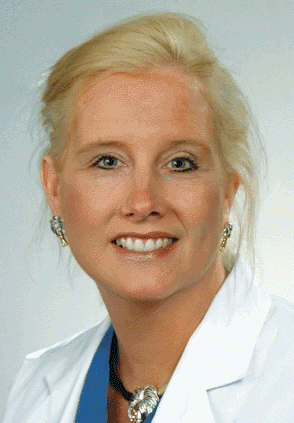Facial prosthetics can be a life-changing milestone for patients who have lost an eye, ear, or nose or sustained damage to intraoral structures. For many years, such people were forgotten patients who had to live with these obvious deformities. Many of them avoided social situations and interactions. But thanks to advances in science and technology, a near-normal appearance can be restored with a new prosthetic eye, ear, or nose.
Explore This Issue
February 2009Trauma (car accidents, burns, occupational accidents), head and neck cancer, and congenital defects are the most common reasons for full or partial loss of an eye, ear, nose, jawbone, or other head and neck structures. Patients faced with these defects may be able to choose between surgical reconstruction and prosthetic reconstruction, depending on the location and size of the defect. Sometimes the decision is between a prosthesis and nothing at all, for people who live in rural areas and/or lack insurance coverage. But even if people have geographical access to a center of excellence and the financial means to avail themselves of the best possible care, they may choose to live with a deformity rather than to have the hassle of cleaning and replacing a prosthetic device on a daily basis.
 Technology is transforming the field of facial prosthetics. Software programs allow the clinician the ability to design the contour of the prosthesis virtually. Color measurement programs of the skin aid in matching all the prosthesis to the skin. Virtual surgical planning software enhances the surgical outcome.
Technology is transforming the field of facial prosthetics. Software programs allow the clinician the ability to design the contour of the prosthesis virtually. Color measurement programs of the skin aid in matching all the prosthesis to the skin. Virtual surgical planning software enhances the surgical outcome.
-Betsy Davis, DMD, MS
Under ideal circumstances, creating a well-fitted facial prosthesis with an excellent cosmetic result requires a team effort of an array of specialists, each focusing on an area involved in maxillofacial rehabilitation. Depending on whether the defect is extraoral or intraoral and on the extent of the defect, these specialists will include head and neck surgeons, facial plastic surgeons, maxillofacial prosthodontists, and medical artists or anaplastologists. Speech pathologists, physical therapists, nutrition counselors, and other rehabilitation counselors are called in to address functional and quality-of-life considerations with both surgical and prosthetic rehabilitation.
Getting state-of-the-art treatment depends on the team available to the patient. Not everyone has access to an ablative surgeon, a plastic surgeon, a maxillofacial surgeon, or a maxillofacial prosthodontist, said Joseph Huryn, DDS, Chief of the Dental Service at Memorial Sloan-Kettering Cancer Center in New York. Dr. Huryn’s practice is focused on cancer patients, who may have lost part of a jaw, teeth, and other intraoral structures as a result of ablative surgery for head and neck cancer.
Leave a Reply